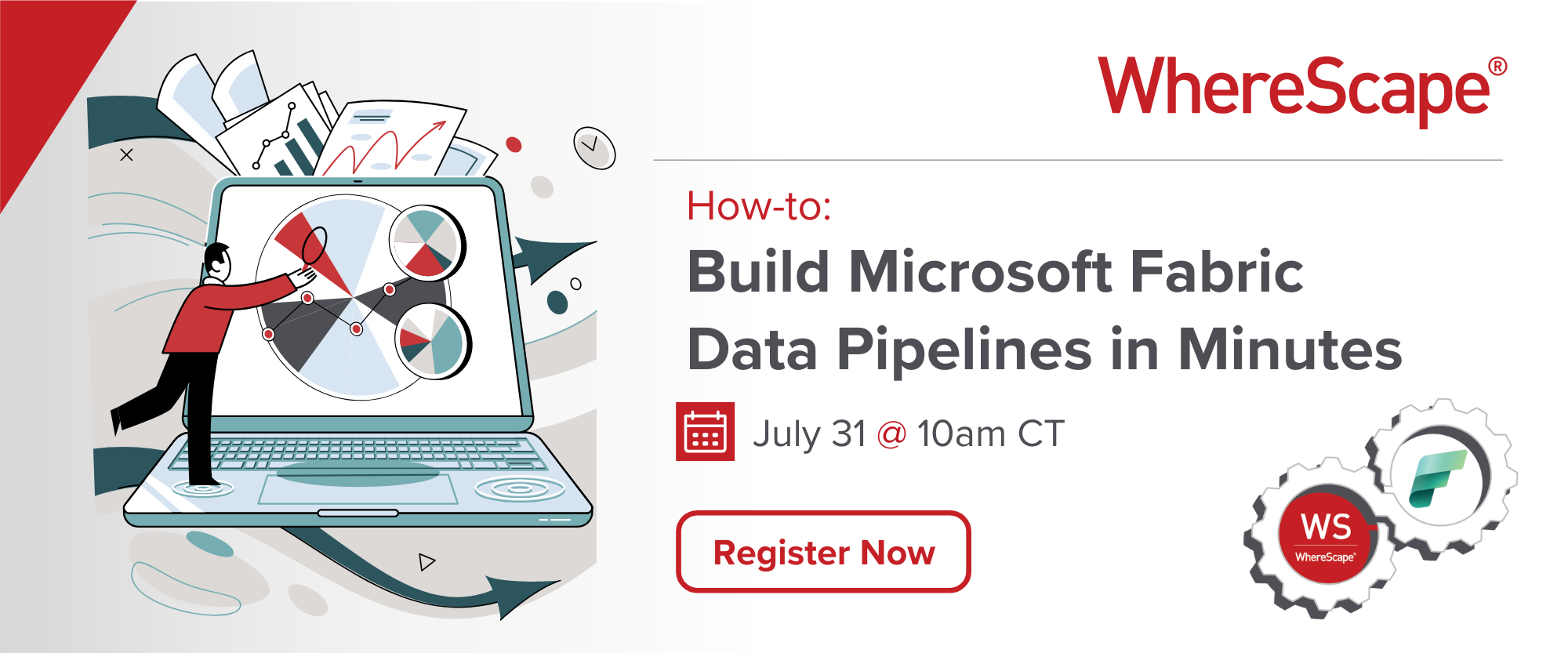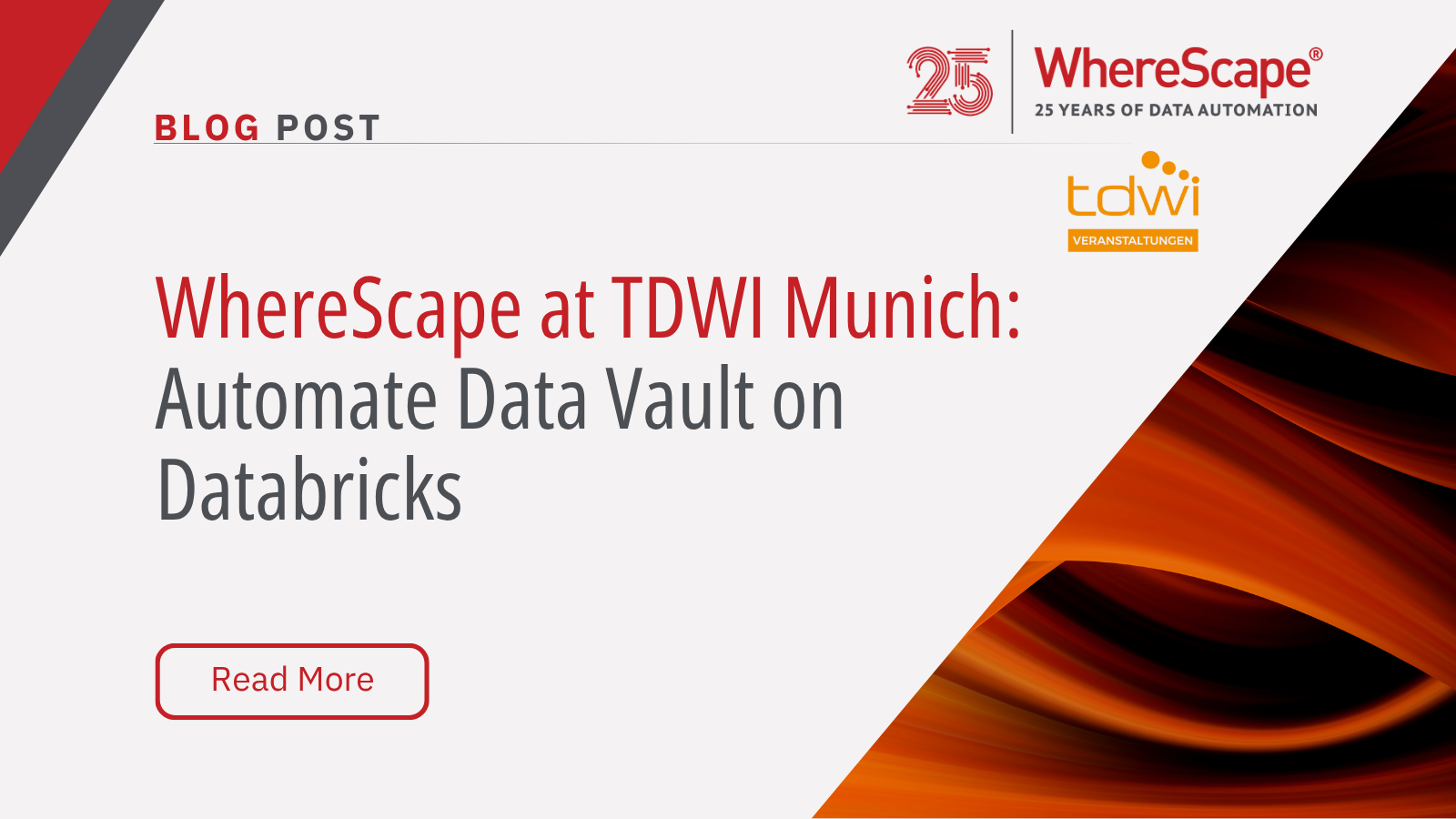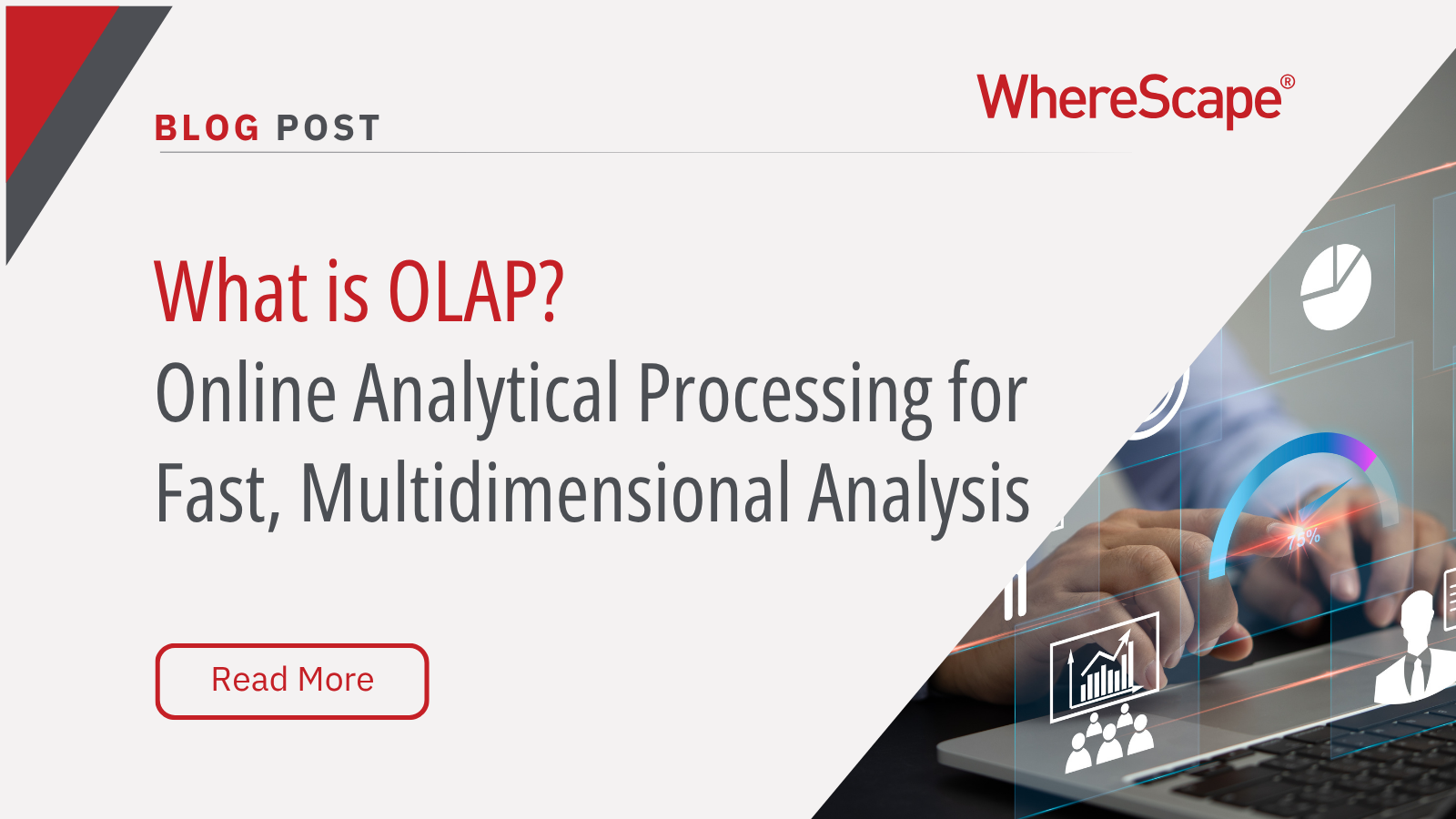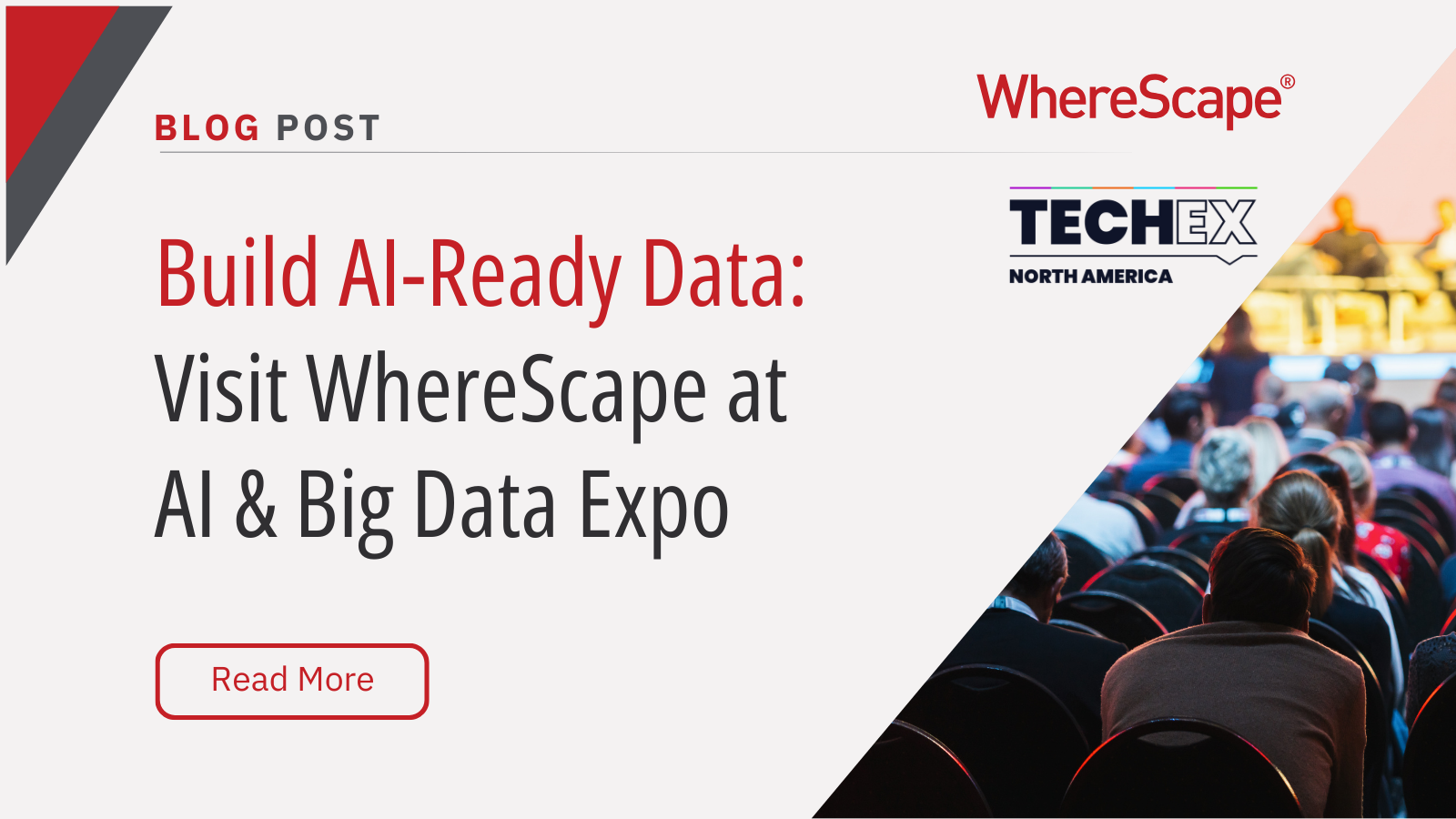Join our fast-and-friendly virtual tour to...
Brief Insights from Gartner® Latest Report on Data Fabric and Data Mesh
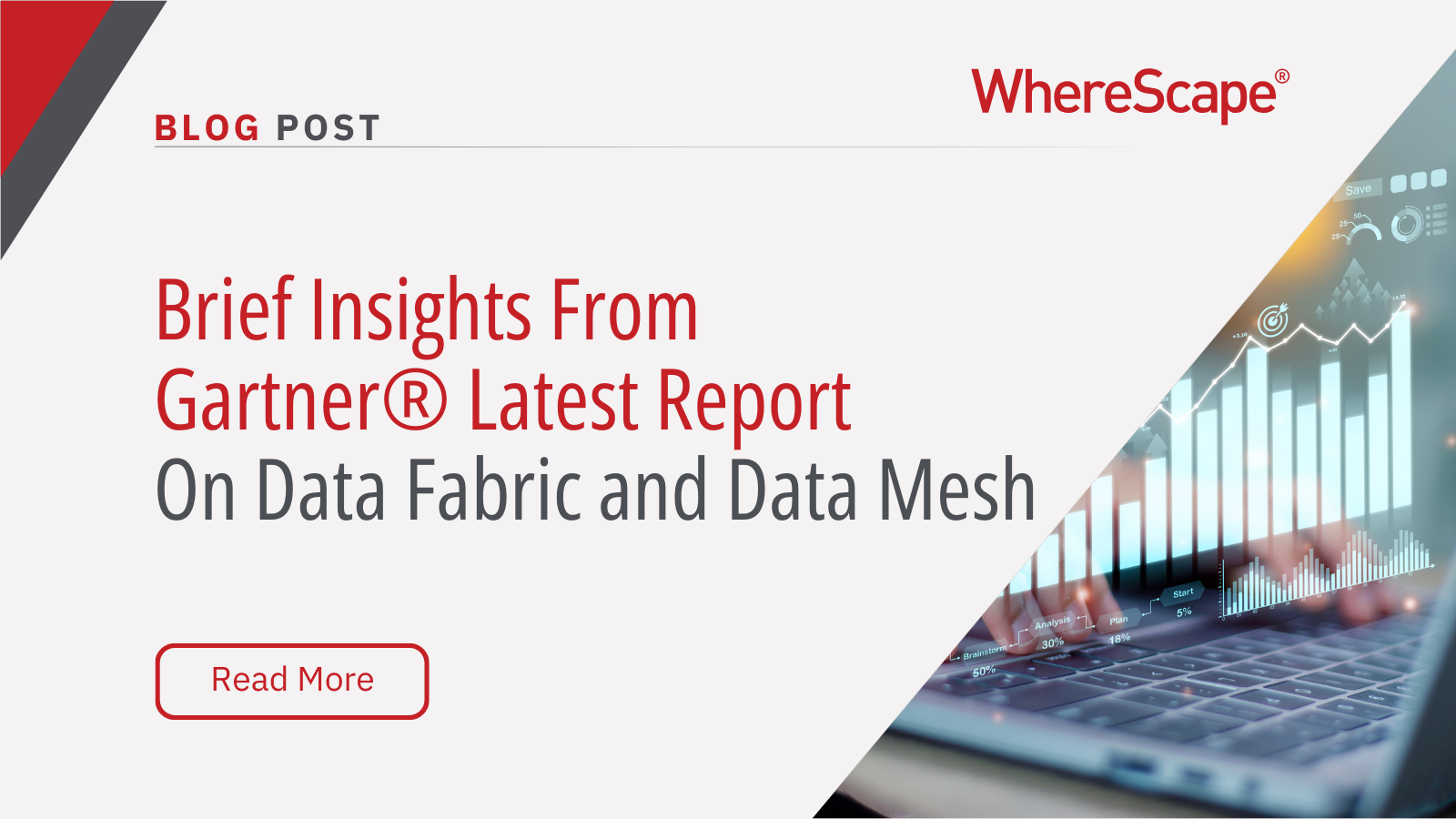
In the rapidly evolving world of data management, distinguishing between the myriad of strategies and technologies can be daunting. The latest Gartner® report, “How Are Organizations Overcoming Issues to Start Their Data Fabric or Mesh?” provides critical insights that illuminate this path. This report, now available through WhereScape, is a beacon for data and analytics leaders steering through the complexities of data management solutions.
What is Data Fabric?
Data fabric is an advanced data management framework that seamlessly connects different data sources, platforms, and environments within an organization. Think of it as an intelligent layer that spans across all the data systems, enabling data to be accessed and shared efficiently across various applications and business processes.
This framework utilizes existing technologies and infrastructure but enhances them with capabilities like real-time data integration, data orchestration, and semantic discovery. The goal is to create a unified and coherent data environment that supports dynamic data access and analysis, reducing complexity and accelerating decision-making processes.
What is Data Mesh?
Data mesh shifts the focus towards a decentralized approach to data management and architecture. It operates on the principle that data should be treated as a product, with ownership and responsibility distributed across different business domains rather than centralized in a single data team or department. Each domain or team manages its own data as if it were a product, ensuring it’s well-defined, high-quality, and easily accessible to others.
This approach encourages a more collaborative and autonomous handling of data, with strong governance and standardization principles in place to ensure interoperability and consistency. Data mesh aims to solve the challenges of data silos and improve agility by empowering teams with direct control over their data assets.
Key Insights from Gartner® Analysts
The report, authored by Mark Beyer, Henry Cook, and Ehtisham Zaidi, discusses how organizations can navigate the decision between data fabric and data mesh. It underscores a vital message: the journey towards an effective data management strategy does not involve choosing one over the other but understanding how both can be harmonized. Leveraging and reusing existing infrastructure is spotlighted as a pragmatic approach to avoid the costs and disruptions of starting anew.
Streamlined Solutions for Data Management
Gartner® advocates for blending data fabric and mesh approaches to enhance existing data infrastructure efficiently. This strategy leverages the strengths of both models for scalable and adaptable solutions.
- Employ automation for seamless data integration across the ecosystem.
- Integrate real-time analytics for actionable insights, utilizing AI for predictive analysis.
- Implement governance frameworks to ensure data quality and compliance.
Data mesh emphasizes decentralized management, encouraging:
- Organize data around business needs for effective management and use.
- Develop platforms for easy data access and collaboration, supporting data democratization.
- Apply federated governance for a balance between standards and domain-specific flexibility.
Bridging Data Fabric and Data Mesh for Holistic Data Management
The synergy between data fabric and mesh approaches enables organizations to build upon their existing infrastructure while embracing the flexibility and agility of decentralized data management. This dual strategy allows for:
- Developing an architecture that supports both centralized control and decentralized innovation, allowing for scalability and adaptability to new technologies and business models.
- Streamlining data operations by automating routine tasks, enhancing data quality and speed to insight, and reducing operational costs.
- Fostering a culture of collaboration and agility where data is viewed as a valuable asset across the organization, enhancing innovation and competitive advantage.
By adopting these practical solutions, organizations can effectively navigate the complexities of modern data management, aligning with Gartner® guidance to leverage the strengths of both data fabric and data mesh. This approach not only ensures a robust, secure, and compliant data environment but also empowers businesses to harness the full potential of their data assets for strategic advantage.
Technical Insights on WhereScape’s Alignment with Gartner® Recommendations
WhereScape’s suite of tools, WhereScape RED, WhereScape 3D, and WhereScape Data Vault Express, offers targeted solutions to modernize and streamline data infrastructure development and management, reflecting the synergy between data fabric and data mesh strategies.
WhereScape RED: Automating Data Infrastructure
WhereScape RED is an automation tool designed for building, deploying, managing, and renovating data warehouses and big data environments. It dramatically accelerates development cycles by generating native code for a variety of platforms (SQL, Oracle, etc.) and automating repetitive design and deployment tasks. RED facilitates the data fabric approach by:
- Rapid Integration: Automating ELT processes, reducing manual coding, and speeding up the integration of diverse data sources into a cohesive data ecosystem.
- Metadata Management: Providing a rich metadata repository that enhances data governance and lineage tracking, crucial for both data fabric and mesh frameworks.
WhereScape 3D: Planning and Prototyping
WhereScape 3D specializes in data warehouse planning and prototyping, allowing for the rapid design and understanding of data models before they are built. It supports the data mesh principle by:
- Agile Data Product Development: Enabling quick iteration and prototyping of data models, facilitating domain-driven design and decentralized governance.
- Impact Analysis: Offering tools for analyzing the impact of changes, ensuring that decentralized data products remain aligned with enterprise standards and compliance requirements.
WhereScape Data Vault Express: Simplifying Data Vault Implementation
WhereScape Data Vault Express is tailored for organizations looking to adopt the Data Vault 2.0 methodology, simplifying its implementation with automation. It aligns with Gartner’s recommendations by:
- Enabling Scalable Architecture: Automating the building of Data Vaults, it supports scalable, flexible data architectures that can grow and evolve with the organization’s needs.
- Supporting Data Governance: By structuring data in a way that is inherently auditable and traceable, it enhances governance and compliance efforts, key aspects of both fabric and mesh.
Empowering Technical Teams
Across all its solutions, WhereScape empowers technical teams to:
- Maximize Existing Investments: Integrate seamlessly with existing databases, data lakes, and warehouse platforms, leveraging and enhancing rather than replacing.
- Enhance Operational Efficiency: Reduce time-to-value for data projects with automated code generation, deployment, and documentation capabilities.
- Foster Collaboration: Bridge the gap between IT and business units by facilitating a common understanding and agile response to changing data needs.
Enhanced Data Automation with WhereScape
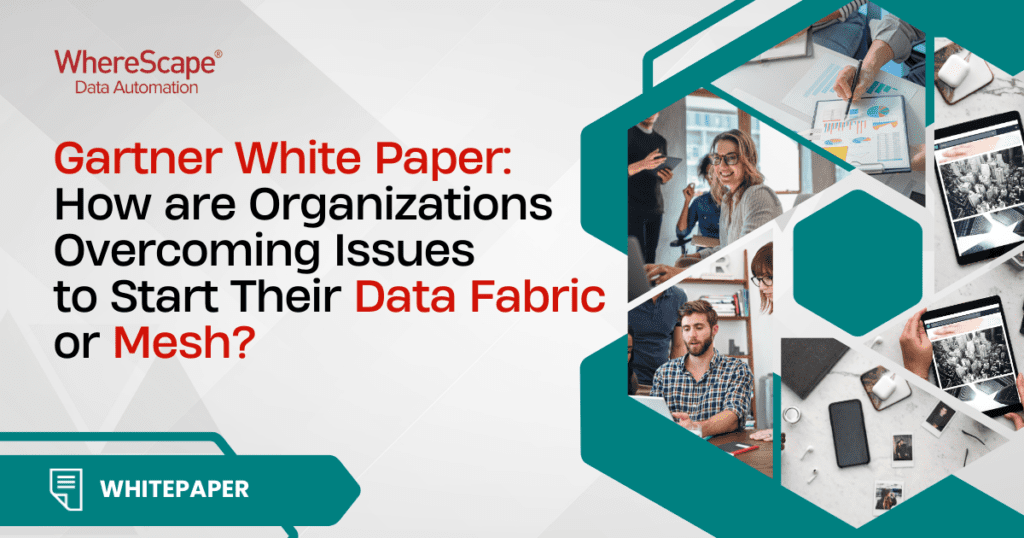
The Gartner® report “How Are Organizations Overcoming Issues to Start Their Data Fabric or Mesh?” serves as a critical resource for understanding the nuanced interplay between data fabric and mesh. Its comprehensive analysis, backed by expert guidance, offers actionable strategies for data and analytics leaders. WhereScape’s commitment to aligning with these insights ensures that our solutions remain at the forefront of enabling organizations to navigate the complexities of data management with confidence and strategic insight.
Start your journey towards a more integrated, efficient, and effective data management strategy by leveraging the insights from this pivotal report and download it here.
With WhereScape’s solutions, you’re not just navigating the data landscape; you’re shaping it. Request a demo now to code less and achieve more.
WhereScape at TDWI Munich: Automate Data Vault on Databricks
WhereScape at TDWI Munich 2025: Automate a Full Data Vault on Databricks in Just 45 Minutes June 24–26, 2025 | MOC Munich, Germany As data complexity grows and business demands accelerate, scalable and governed data architectures are no longer optional—they're...
What Is OLAP? Online Analytical Processing for Fast, Multidimensional Analysis
Streamline your data analysis process with OLAP for better business intelligence. Explore the advantages of Online Analytical Processing (OLAP) now! Do you find it challenging to analyze large volumes of data swiftly? A Forrester study reveals that data teams spend...
Build AI-Ready Data: Visit WhereScape at AI & Big Data Expo
June 4–5, 2025 | Booth 202 | Santa Clara Convention Center As organizations scale their artificial intelligence and analytics capabilities, the demand for timely, accurate, governed, and AI-ready data has become a strategic priority. According to Gartner, through...
Automating Star Schemas in Microsoft Fabric: A Webinar Recap
From Data Discovery to Deployment—All in One Workflow According to Gartner, data professionals dedicate more than half of their time, 56%, to operational tasks, leaving only 22% for strategic work that drives innovation. This imbalance is especially apparent when...
What is a Data Model? How Structured Data Drives AI Success
What is a data model? According to the 2020 State of Data Science report by Anaconda, data scientists spend about 45% of their time on data preparation tasks, including cleaning and loading data. Without well-structured data, even the most advanced AI systems can...
ETL vs ELT: What are the Differences?
In working with hundreds of data teams through WhereScape’s automation platform, we’ve seen this debate evolve as businesses modernize their infrastructure. Each method, ETL vs ELT, offers a unique pathway for transferring raw data into a warehouse, where it can be...
Dimensional Modeling for Machine Learning
Kimball’s dimensional modeling continues to play a critical role in machine learning and data science outcomes, as outlined in the Kimball Group’s 10 Essential Rules of Dimensional Modeling, a framework still widely applied in modern data workflows. In a recent...
Automating Data Vault in Databricks | WhereScape Recap
Automating Data Vault in Databricks can reduce time-to-value by up to 70%—and that’s why we hosted a recent WhereScape webinar to show exactly how. At WhereScape, modern data teams shouldn't have to choose between agility and governance. That's why we hosted a live...
WhereScape Recap: Highlights From Big Data & AI World London 2025
Big Data & AI World London 2025 brought together thousands of data and AI professionals at ExCeL London—and WhereScape was right in the middle of the action. With automation taking center stage across the industry, it was no surprise that our booth and sessions...
Why WhereScape is the Leading Solution for Healthcare Data Automation
Optimizing Healthcare Data Management with Automation Healthcare organizations manage vast amounts of medical data across EHR systems, billing platforms, clinical research, and operational analytics. However, healthcare data integration remains a challenge due to...
Related Content
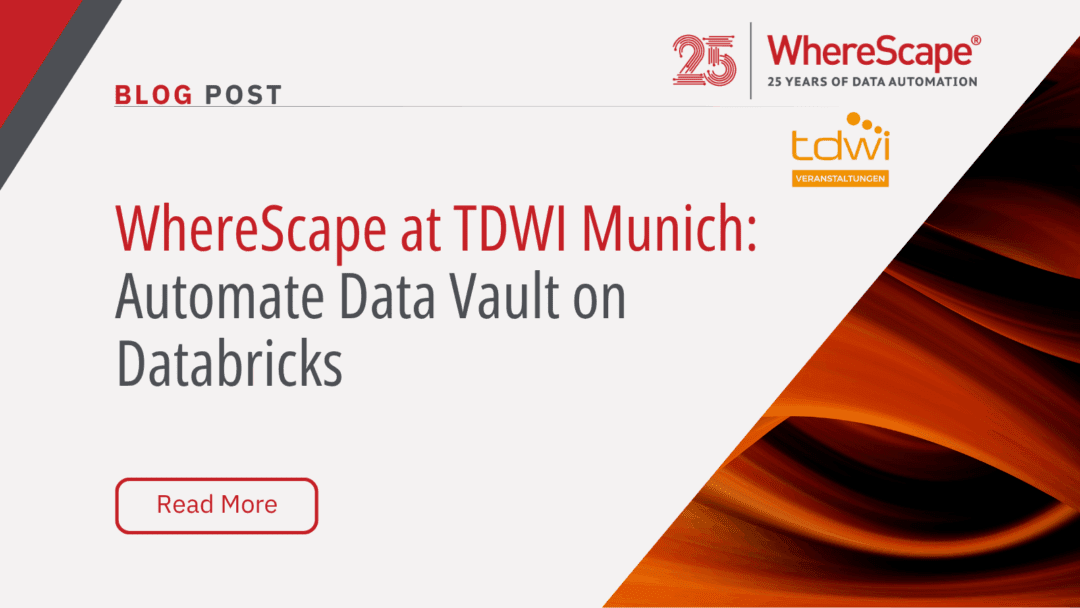
WhereScape at TDWI Munich: Automate Data Vault on Databricks
WhereScape at TDWI Munich 2025: Automate a Full Data Vault on Databricks in Just 45 Minutes June 24–26, 2025 | MOC Munich, Germany As data complexity grows and business demands accelerate, scalable and governed data architectures are no longer optional—they're...
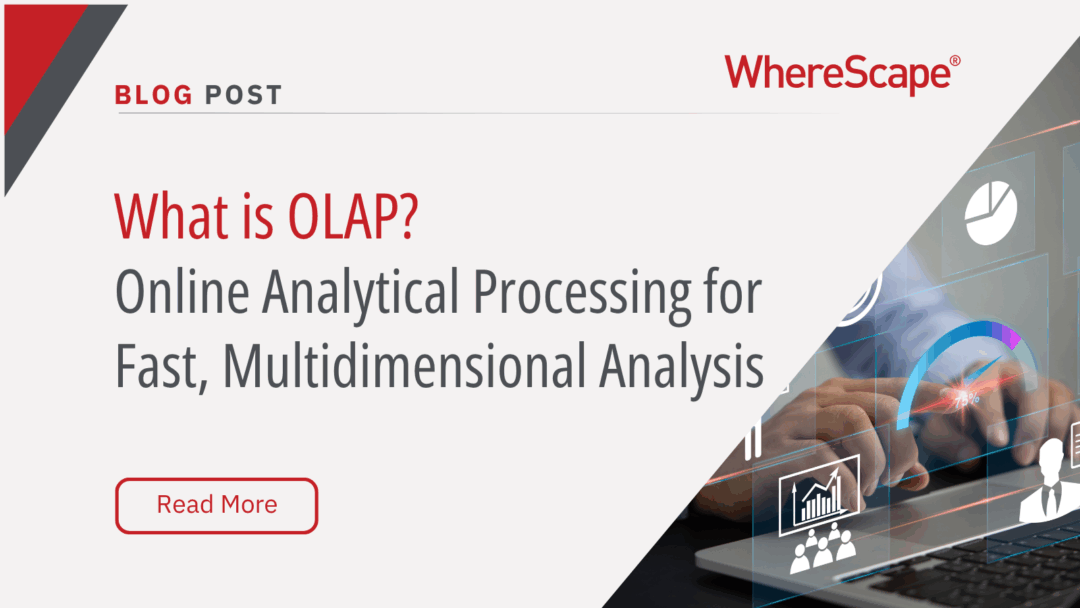
What Is OLAP? Online Analytical Processing for Fast, Multidimensional Analysis
Streamline your data analysis process with OLAP for better business intelligence. Explore the advantages of Online Analytical Processing (OLAP) now! Do you find it challenging to analyze large volumes of data swiftly? A Forrester study reveals that data teams spend...
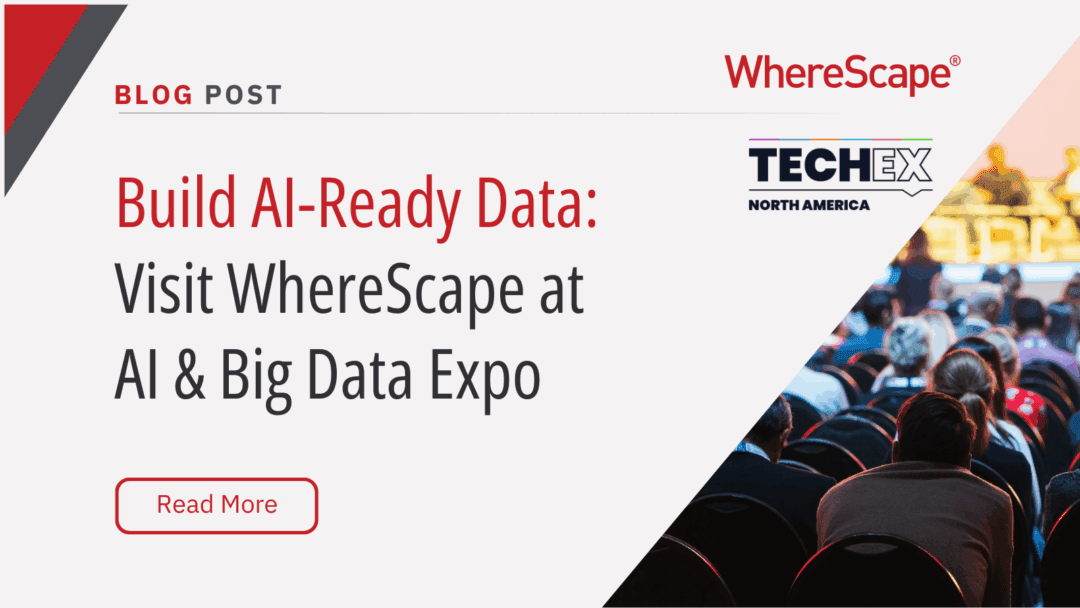
Build AI-Ready Data: Visit WhereScape at AI & Big Data Expo
June 4–5, 2025 | Booth 202 | Santa Clara Convention Center As organizations scale their artificial intelligence and analytics capabilities, the demand for timely, accurate, governed, and AI-ready data has become a strategic priority. According to Gartner, through...
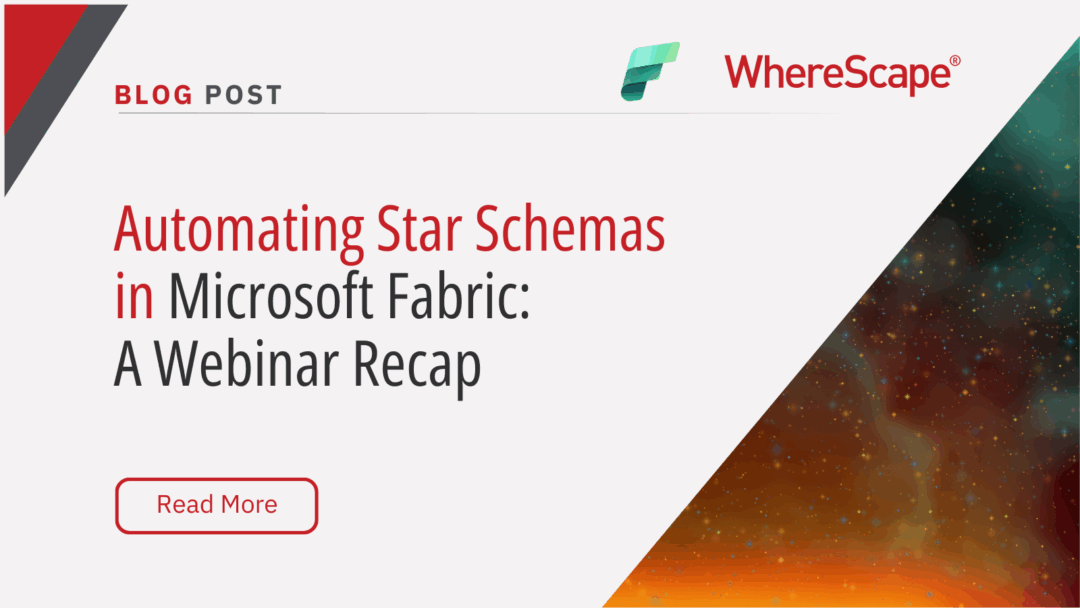
Automating Star Schemas in Microsoft Fabric: A Webinar Recap
From Data Discovery to Deployment—All in One Workflow According to Gartner, data professionals dedicate more than half of their time, 56%, to operational tasks, leaving only 22% for strategic work that drives innovation. This imbalance is especially apparent when...

